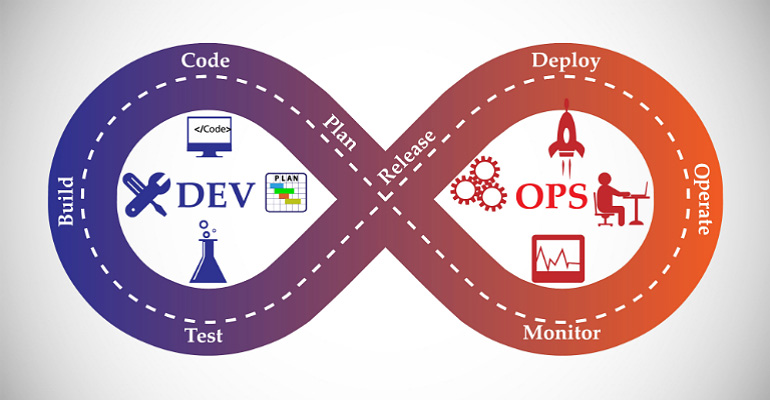Introduction
DevOps is poised to revolutionize industries further as it adapts to emerging technologies and trends. By 2025, its role will expand beyond traditional software development, encompassing areas like artificial intelligence, cybersecurity, IoT, and cloud computing. With businesses demanding faster deployments, higher efficiency, and greater security, DevOps practices will evolve to meet these challenges. This article explores the upcoming uses of DevOps, highlighting its potential to transform IT operations and drive innovation in a rapidly changing technological landscape. Consider investing in DevOps Training Online for the best opportunities in this field.
Upcoming Uses of DevOps in 2025
DevOps continues to evolve, and by 2025, it is expected to integrate deeper into several domains, transforming industries through innovation and efficiency.
Below are some of the upcoming uses and trends of DevOps in 2025:
1. AI-Driven DevOps
Artificial Intelligence (AI) and Machine Learning (ML) will redefine DevOps practices. By 2025, predictive analytics and intelligent automation will enable faster debugging, code reviews, and incident resolution. AI-driven tools will identify performance bottlenecks and suggest optimizations, enhancing continuous integration and delivery (CI/CD) pipelines.
2. DevSecOps Dominance
The integration of security into the DevOps lifecycle (DevSecOps) will gain prominence. With increasing cyber threats, organizations will prioritize embedding security measures at every stage of development. Automated compliance checks and threat detection systems will make applications more secure and resilient.
3. Serverless Computing and DevOps
Serverless computing will transform application deployment and scalability. DevOps teams will increasingly leverage serverless architectures for reduced operational overhead and dynamic scalability. This will complement microservices-based architectures, fostering faster and more efficient deployments.
4. Edge Computing and IoT Integration
As the Internet of Things (IoT) expands, DevOps will play a key role in managing edge computing systems. Therefore, getting the DevOps Certification can be a wise career move for aspiring professionals. DevOps pipelines will enable real-time updates and management of distributed systems, ensuring low latency and high availability for IoT devices.
5. GitOps for Simplified Operations
GitOps, a subset of DevOps, will become mainstream by 2025. Using Git as a single source of truth for managing infrastructure will simplify operational complexities, making deployments more reliable and transparent.
6. Hybrid and Multi-Cloud Strategies
Organizations will increasingly adopt hybrid and multi-cloud strategies, necessitating robust DevOps pipelines for seamless cloud orchestration. DevOps teams will use advanced tools for unified monitoring and deployment across diverse cloud platforms.
In 2025, DevOps will become even more critical for organizations aiming to stay competitive in a digital-first world. From AI and serverless computing to DevSecOps and hybrid clouds, DevOps will drive innovation while enhancing speed, security, and collaboration across industries. These advancements will further solidify its role as the backbone of modern IT infrastructure. Therefore, one must join the DevOps Course in Delhi for the best guidance and opportunities.
Conclusion
By 2025, DevOps will advance significantly, shaping industries with AI-driven tools, DevSecOps practices, serverless computing, and IoT integration. It will enhance operational efficiency, ensure security, and support scalable architectures like hybrid clouds and GitOps. These innovations will streamline processes, boost collaboration, and help organizations thrive in a competitive digital landscape. As technology evolves, DevOps will remain indispensable, fostering innovation and ensuring seamless delivery of high-quality software solutions.
FAQs
- How will AI impact DevOps in 2025?
AI will enhance DevOps through predictive analytics, automated issue detection, and intelligent optimization of CI/CD pipelines. It will streamline debugging, testing, and deployment processes, making software delivery faster and more reliable.
- What is the role of DevSecOps in 2025?
DevSecOps will be critical, embedding security into every phase of the development lifecycle. Automated threat detection, compliance checks, and secure CI/CD practices will help protect applications against evolving cyber threats.
- How will serverless computing influence DevOps?
Serverless computing will reduce operational overhead and enhance scalability. DevOps teams will focus on managing dynamic workflows and ensuring seamless deployment of serverless applications, improving efficiency and reducing infrastructure management complexities.
- What is GitOps, and why is it important for 2025?
GitOps leverages Git as a single source of truth for infrastructure management. It simplifies operations by automating deployments and rollbacks, ensuring consistency, transparency, and reliability in managing modern applications.
- How will DevOps integrate with edge computing and IoT?
DevOps will enable real-time management of edge computing systems and IoT devices. Automated pipelines will ensure updates are deployed efficiently across distributed systems, enhancing performance, reliability, and scalability in IoT networks.
